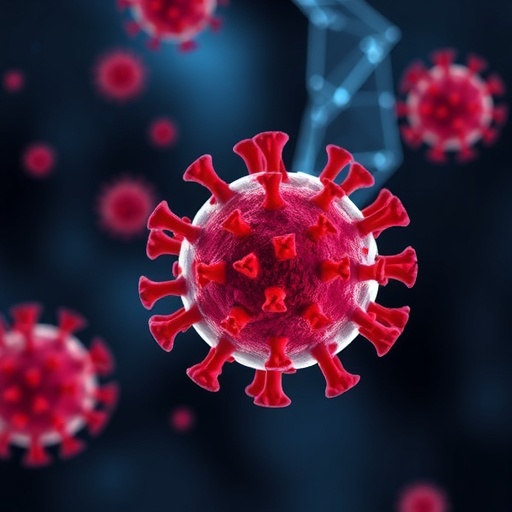Emerging research highlights a troubling correlation between maternal COVID-19 infection during pregnancy and an increased risk of neurodevelopmental disorders in children by the age of three. Investigators from Mass General Brigham have uncovered evidence suggesting that in utero exposure to SARS-CoV-2, the virus responsible for COVID-19, may disrupt fetal brain development, leading to conditions such as speech delays, autism spectrum disorders, motor dysfunction, and other developmental impairments. This landmark study, recently published in the peer-reviewed journal Obstetrics & Gynecology, sheds light on the potential long-term neurological impact of prenatal viral exposure during the pandemic.
The study’s lead authors emphasize that this research is part of a broader landscape of understanding infectious disease impact on pregnancy outcomes. Previous literature has established connections between maternal infections and later neurodevelopmental disorders in offspring, which has been supported by extensive animal model research. In these models, maternal immune activation during gestation is known to interfere with key neurodevelopmental pathways, potentially leading to altered synaptic connectivity and neurobehavioral abnormalities. Translating these findings to humans during the COVID-19 era represents a crucial advancement in perinatal medicine and neuropsychiatry.
Researchers meticulously analyzed a cohort of over 18,000 live births within the Mass General Brigham healthcare system, spanning the height of the COVID-19 pandemic from March 2020 to May 2021. Among these, 861 children were identified as having been exposed in utero to confirmed SARS-CoV-2 infection in their mothers. The team employed rigorous statistical methodologies, including adjustment for confounding factors, to examine the incidence of neurodevelopmental diagnoses by age three. Their findings revealed a neurodevelopmental disorder prevalence of 16.3% among exposed children, a stark contrast to the 9.7% observed in children born to uninfected mothers.
Crucially, this translates into a 29% increase in odds of being diagnosed with a developmental disorder following prenatal exposure to SARS-CoV-2. While the absolute risk remains moderate, these results raise profound concerns about the intrauterine environment shaped by maternal viral infections. The biological mechanisms proposed involve maternal immune activation, cytokine cascades, and placental inflammation, all of which may interfere with the trajectory of fetal neurogenesis, myelination, and synaptic pruning, processes foundational to normal cognitive and motor development.
Intriguingly, the study identified a sex-specific vulnerability, with male offspring exhibiting a higher relative risk compared to females. This sex bias aligns with established patterns in neurodevelopmental conditions such as autism spectrum disorder, where males are disproportionately affected. The underlying reasons may involve differential placental function, sex chromosome influences on immune responses, or vulnerability windows during brain maturation that differ between males and females.
Timing of maternal infection also emerged as a significant factor influencing outcome severity. The third trimester bore the highest association with increased neurodevelopmental risks, implicating late gestation as a critical window during which viral insults may have maximal disruptive potential on the brain’s structural and functional organization. This insight offers a temporal framework for clinicians to intensify surveillance and early intervention efforts.
Notwithstanding these associations, experts caution that the overall risk for adverse outcomes remains relatively low. Dr. Roy Perlis, co-senior author and psychiatrist at Mass General Brigham, underscores that while the data signal an elevated risk, it is by no means determinative for every exposed child. This nuance is vital to avoid undue alarmism while still promoting vigilance and appropriate monitoring.
Beyond risk quantification, the study advocates empowering parents and healthcare providers with awareness and resources. Dr. Lydia Shook, the study’s first author, highlights the importance of parental knowledge in facilitating timely developmental screenings and access to supportive therapies. Early detection and intervention are known to substantially improve long-term outcomes for children with neurodevelopmental impairments, reinforcing the practical value of these findings in clinical pediatrics and public health.
This research additionally dramatizes the ongoing imperative to bolster preventive strategies against COVID-19, especially vaccination efforts among pregnant populations. The maternal-fetal interface, previously considered relatively protected, appears susceptible to viral-mediated disruption, reaffirming the benefits of maternal immunization in shielding not only the mother but the developing child. In an era marked by vaccine hesitancy fueled by misinformation, findings like these provide critical scientific rationale to combat skepticism and reinforce public health messaging.
From a methodological standpoint, the investigators utilized comprehensive healthcare databases, allowing longitudinal follow-up and robust outcome ascertainment. Their analytic approach adjusted for potential confounders including maternal age, race, ethnicity, and pre-existing health conditions, enhancing the credibility and generalizability of the conclusions. However, the authors acknowledge inherent limitations such as potential under-diagnosis of neurodevelopmental conditions and the need for longer-term follow-up beyond three years to fully map developmental trajectories.
In summation, this seminal study contributes pivotal evidence linking prenatal SARS-CoV-2 exposure with increased neurodevelopmental risks in early childhood. It navigates the complex interplay between infectious disease, maternal immune activation, and brain development, with implications touching obstetrics, pediatrics, neurology, and psychiatry. The findings galvanize calls for intensified research, preventive healthcare policy prioritization, and dedicated support systems for affected families as the medical community continues to grapple with COVID-19’s enduring legacy.
By unearthing these critical associations, the study underscores the necessity for continued vigilance in maternal healthcare during infectious disease outbreaks and illuminates pathways for mitigating lifelong developmental disabilities emerging from prenatal viral exposures.
Subject of Research: People
Article Title: Neurodevelopmental Outcomes of 3-Year-Old Children Exposed to Maternal Severe Acute Respiratory Syndrome Coronavirus 2 (SARS-CoV-2) Infection in Utero
News Publication Date: 30-Oct-2025
Web References:
https://doi.org/10.1097/AOG.0000000000006112
References:
Shook LL et al. “Neurodevelopmental Outcomes of 3-Year-Old Children Exposed to Maternal Severe Acute Respiratory Syndrome Coronavirus 2 (SARS-CoV-2) Infection in Utero.” Obstetrics & Gynecology. DOI: 10.1097/AOG.0000000000006112
Keywords: Human reproduction, neurodevelopmental disorders, maternal COVID-19 infection, prenatal viral exposure, fetal brain development, SARS-CoV-2, maternal immune activation, developmental delays, autism spectrum disorder, pediatric neurology




